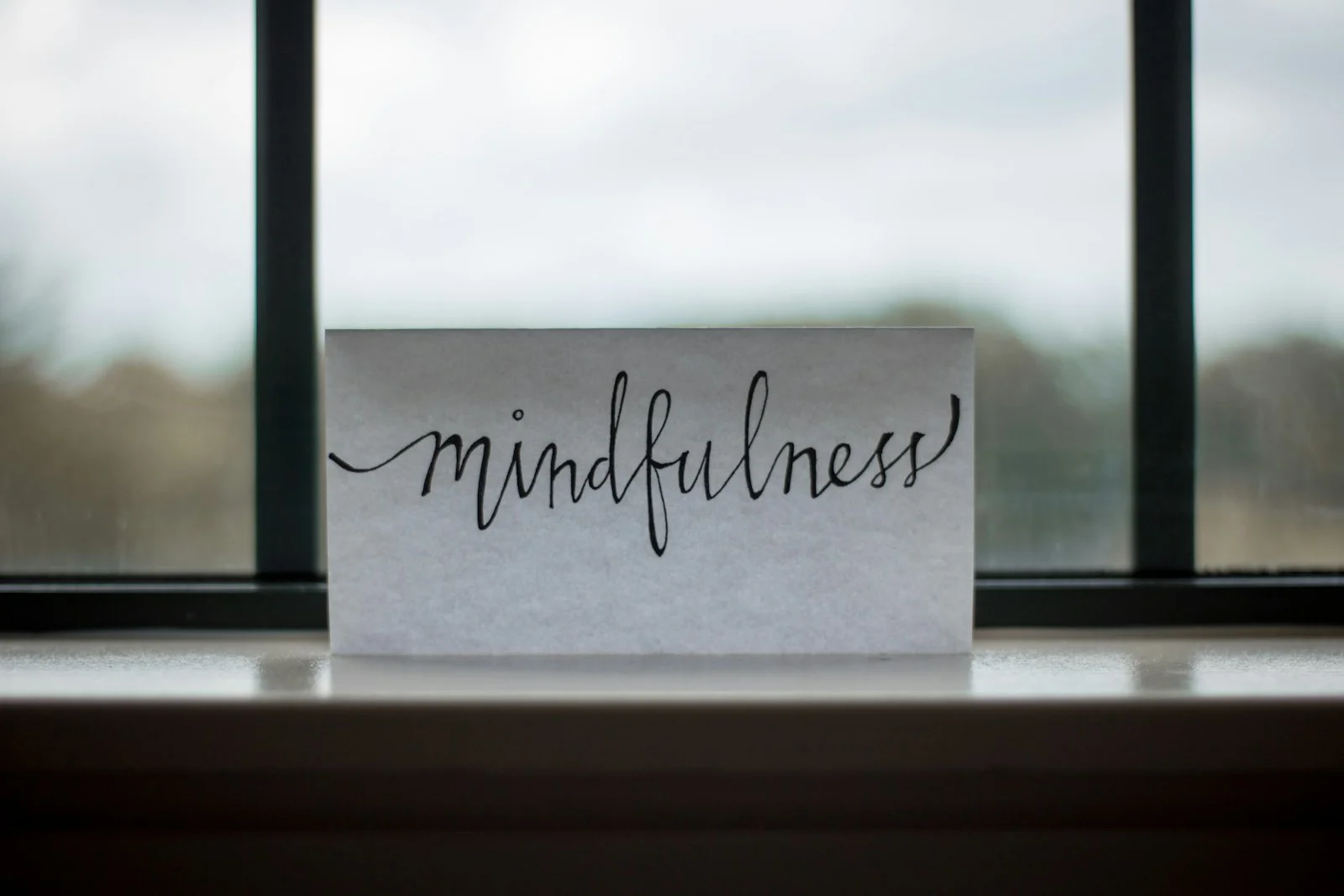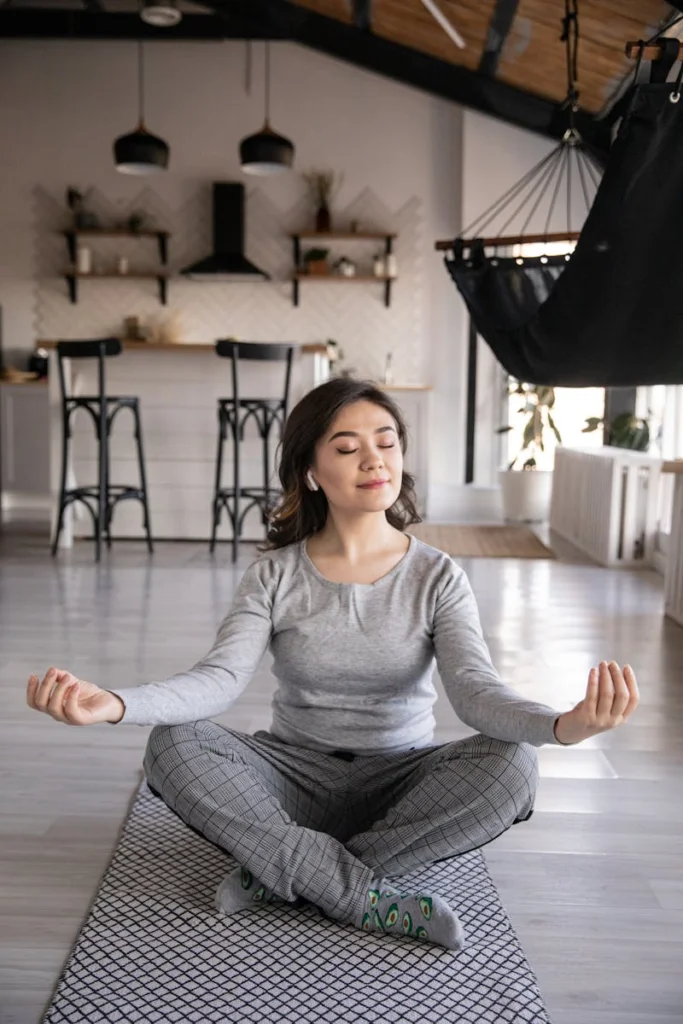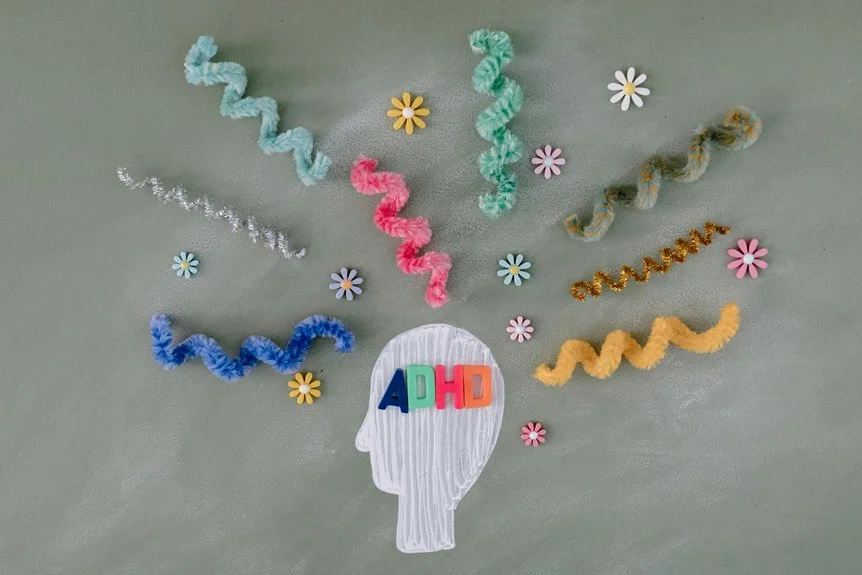
You’re living in a world that’s constantly pulling your attention in ten different directions, and I can tell you from experience that your mind is paying the price. The racing thoughts, the inability to focus, the feeling like you’re always “on” – these aren’t character flaws, they’re symptoms of a scattered nervous system that desperately needs retraining. But here’s what most people don’t realize about mindfulness: it doesn’t require hours of meditation or expensive retreats to transform your daily experience.
Start Your Morning With Mindful Breathing
Most people stumble through their mornings on autopilot, grabbing coffee and checking phones before their minds even register they’re awake. I can tell you this habit kills your potential for commanding your day.
You’re handing control to external forces when you should be seizing it. Start with five minutes of mindful breathing instead. Sit upright, close your eyes, and focus solely on your breath flowing in and out. When thoughts intrude—and they will—acknowledge them without judgment, then return to breathing.
I’ve never seen a practice build mental discipline faster. This simple routine trains your mind to focus on what you choose, not what demands attention. You’re programming yourself for intentional living, creating the foundation for making powerful decisions throughout your day. This intentional morning space helps override automatic negative thoughts and sets you up to respond from a place of choice rather than react from habit.
Transform Routine Activities Into Meditation Moments

While you’re washing dishes, walking to your car, or brushing your teeth, you’re missing dozens of opportunities to strengthen your mindfulness muscle. I can tell you from experience, these mundane moments become your most powerful training ground when you know how to use them.
Every ordinary moment holds extraordinary potential for mindfulness practice when you learn to recognize the opportunity.
Transform these activities into meditation moments:
- Focus on physical sensations – Feel warm water on your hands, notice your feet touching the ground
- Engage your senses completely – Listen to sounds around you, smell the soap, taste the toothpaste
- Observe your thoughts without judgment – Watch mental chatter come and go like passing clouds
- Breathe intentionally – Match your breath rhythm to your movements
I’ve never seen anyone regret building this habit. You’ll discover that power comes from presence, and every routine task becomes a chance to strengthen your awareness. Consider starting with just three minutes of zazen meditation each morning to build your foundation before applying these techniques to daily activities.
Practice the 5-4-3-2-1 Grounding Technique

When anxiety hits or your mind starts spiraling, you need a technique that works instantly to pull you back to the present moment. The 5-4-3-2-1 grounding technique delivers that power, and I can tell you it’s saved me countless times from mental chaos.
Here’s how it works: identify 5 things you can see, 4 things you can touch, 3 things you can hear, 2 things you can smell, and 1 thing you can taste. This forces your brain to engage with your immediate environment instead of racing thoughts.
I’ve never seen this technique fail when done properly. The key is being specific—don’t just say “chair,” describe the worn leather armrest or the scratched wooden leg. This detailed focus hijacks your anxious mind and grounds you firmly in reality.
The beauty of this grounding method is that it forces your brain to engage with the present moment instead of the mental tornado of overthinking that typically hijacks your peace of mind.
Take Mindful Walking Breaks Throughout Your Day

Your nervous system needs more than quick grounding fixes—it craves gentle, consistent movement that teaches your mind how to slow down naturally. I can tell you that mindful walking breaks will revolutionize your daily stress management, giving you the power to reset your mental state whenever pressure mounts.
Transform ordinary movement into purposeful practice:
- Step with intention — Feel each foot connect with the ground, noticing weight shifting from heel to toe
- Breathe in rhythm — Match your inhale and exhale to your natural walking pace
- Engage your senses — Observe sounds, textures, temperatures, and visual details around you
- Start small — Take 2-3 minute walking breaks every hour instead of marathon sessions
For those with ADHD, these walking breaks serve the brain’s need for movement like a physical reset, helping redirect restless energy and scattered thoughts into focused calm.
I’ve never seen anyone regret incorporating these micro-retreats into their routine.
Create Technology-Free Mindfulness Intervals
Because digital devices hijack your attention every few seconds, you’re training your brain to expect constant stimulation—and this addiction is quietly destroying your ability to be present. I can tell you from working with thousands of clients, the most successful leaders deliberately create technology-free zones throughout their day.
Start with thirty-minute intervals where you put your phone in another room, close your laptop, and simply exist without screens. During these breaks, you’re retraining your nervous system to find peace in stillness rather than chaos in constant input.
I’ve never seen anyone regain their mental clarity without first breaking free from digital dependency. Schedule these intervals like important meetings—because reclaiming your attention span is the foundation of every other mindfulness practice you’ll attempt.
Consider ending these technology-free periods with simple mindful teeth brushing or other small rituals that help create a transition back to your daily activities.
End Your Day With Gratitude and Body Awareness

Most people wind down by scrolling their phones or watching TV, but this floods your brain with stimulation right when it needs to shift into rest mode. You’re sabotaging your sleep quality and missing a powerful opportunity to cement your day’s wins.
I can tell you that successful leaders I’ve worked with all share this habit: they end their day with intentional reflection.
Here’s your evening mindfulness routine:
- Scan your body from head to toe – Notice tension, release it consciously
- List three specific wins from today – No matter how small they seem
- Acknowledge one challenge you handled well – Build confidence in your problem-solving
- Set one clear intention for tomorrow – Prime your subconscious for success
This practice takes five minutes but transforms how you sleep and wake up. Research shows that keeping a gratitude journal can improve your sleep quality while reducing stress and boosting overall happiness.
Conclusion
You don’t need hours of meditation retreats to transform your mental well-being. I can tell you that these six simple practices, when woven into your daily routine, create profound shifts in how you experience stress, focus, and inner peace. You’ll notice the difference within days, not weeks. Start with just one technique today, build consistency, and watch as mindfulness becomes your most reliable tool for managing life’s challenges with greater calm and clarity.





Leave a Reply